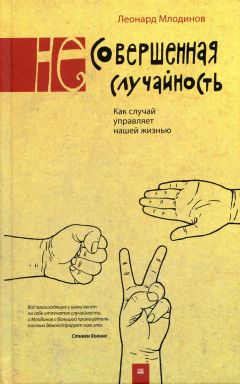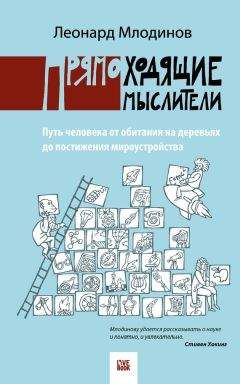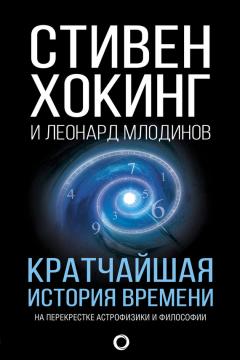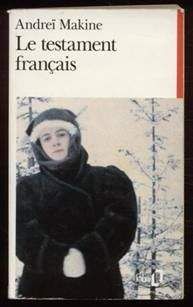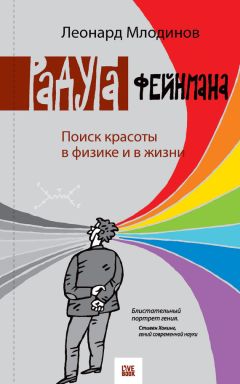Ознакомительная версия.
21
«Mickey Mantle and Roger Maris: The Photographic Essay», Life, August 18, 1961, p. 62.
См. Stephen Jay Gould, «The Streak of Streaks», New York Review of Books, August 18, 1988, pp. 8-12 (далее мы ознакомимся с ними подробнее). Очевидный и математически подробный анализ моделей с подбрасыванием монеты, применимый к спорту, упоминается в главе 2 книги, над которой в настоящее время трудятся Charles М. Grinstead, William P. Peterson, and J. Laurie Snell и чье рабочее название звучит следующим образом: Fat Chance;
www.math.dartmouth.edu/~prob/prob/NEW/bestofchance.pdf
Daniel Kahneman, Paul Slovic, and Amos Tversky, eds., Judgment under Uncertainty: Heuristics and Biases (Cambridge: Cambridge University Press, 1982), pp. 90–98.
Amos Tversky and Daniel Kahneman, «Extensional versus Intuitive Reasoning: The Conjunction Fallacy in Probability judgment», Psychological Review 90, no. 4 (October 1983): 293–315.
Craig R. Fox and Richard Birke, «Forecasting Trial Outcomes: Lawyers Assign Higher Probabilities to Possibilities That Are Described in Greater Detail», Law and Human Behavior 26, no. 2 (April 2002): 159-73.
Платон, «Диалоги Платона», перев. С. Маркиша, М. 1965 г.
Платон, «Теэтет», собр. Соч. в четырех томах. М., 1993 г.
Amos Tversky and Daniel Kahneman, «Availability: A Heuristic for Judging Frequency and Probability», Cognitive Psychology 5 (1973): 207-32.
Reid Hastie and Robyn M. Dawes, Rational Choice in an Uncertain World: The Psychology and Judgement of Decision Making (Thousand Oaks, Calif.: Sage, 2001), p. 87.
Robert M. Reyes, William C. Thompson, and Gordon H. Bower, «Judgmental Biases Resulting from Differing Availabilities of Arguments», Journal of Personality and Social Psychology 39, no. 1 (1980): 2-12.
Robert Kaplan, The Nothing That Is: A Natural History of Zero (London: Oxford University Press, 1999), pp. 15–17.
Cicero, quoted in Morris Kline, Mathematical Thought from Ancient to Modern Times (London: Oxford University Press, 1972), 1:179.
Morris Kline, Mathematics in Western Culture (London: Oxford University Press, 1953), p. 86.
Клайн, «Математическая мысль», c.178–179.
Cicero, quoted in Warren Weaver, Lady Luck (Mineola, N.Y.: Dover Publications, 1982), p. 53.
Cicero, quoted in F. N. David, Gods, Games and Gambling: A History of Probability and Statistical Ideas (Mineola, N.Y.: Dover Publications, 1998), pp. 24–26.
Cicero, quoted in Bart K. Holland, What Are the Chances? Voodoo Deaths, Office Gossip, and Other Adventures in Probability (Baltimore: Johns Hopkins University Press, 2002), p. 24.
Ibid., p. 25.
James Franklin, The Science of Conjecture: Evidence and Probability before Pascal (Baltimore: Johns Hopkins University Press, 2001), pp. 4, 8.
Quoted ibid., p. 13.
Quoted ibid., p. 14.
William C. Thompson, Franco Taroni, and Colin G. G. Aitken, «How the Probability of a False Positive Affects the Value of DNA Evidence», Journal of Forensic Sciences 48, no. 1 (January 2003): 1–8.
Ibid., p. 2. The story is recounted in Bill Braun, «Lawyers Seek to Overturn Rape Conviction», Tulsa World, November 22, 1996. See also www.innocenceproject.org. (Durham was released in 1997.)
People v. Collins, 68 Calif. 2d 319, 438 P.2d 33, 66 Cal. Rptr. 497 (1968).
Thomas Lyon, private communication.
Alan Wykes, Doctor Cardano: Physician Extraordinary (London: Frederick Muller, 1969). See also Oystein Ore, Cardano: The Gambling Scholar, with a translation of Cardano's Book on Games of Chance by Sydney Henry Gould (Princeton, N.J.: Princeton University Press, 1953)
Marilyn vos Savant, «Ask Marilyn», Parade, September 9, 1990.
Bruce D. Burns and Mareike Wieth, «Causality and Reasoning: The Monty Hall Dilemma», in Proceedings of the Twenty-fifth Annual Meeting of the Cognitive Science Society, ed. R. Alterman and D. Kirsh (Hillsdale, N.J.: Lawrence Erlbaum Associates, 2003), p. 198.
National Science Board, Science and Engineering Indicators — 2002 (Arlington, Va.: National Science Foundation, 2002);
http://www.nsf.gov/statistics/seind02/. See vol. 2, chap. 7, table 7-10.
Gary P. Posner, «Nation's Mathematicians Guilty of Innumeracy», Skeptical Inquirer 15, no. 4 (Summer 1991).
Bruce Schechter, My Brain Is Open: The Mathematical Journeys of Paul Erdos (New York: Touchstone, 1998), pp. 107-9.
Ibid., pp. 189-90, 196-97.
John Herney, «Behind Monty's Doors: Puzzle, Debate and Answer?» New York Times, July 21, 1991.
Robert S. Gottfried, The Black Death: Natural and Human Disaster in Medieval Europe (New York: Free Press, 1985).
Gerolamo Cardano, quoted in Wykes, Doctor Cardano, p. 18.
Kline, Mathematical Thought, pp. 184-85, 259-60.
«Oprah's New Shape: How She Got It», O, the Oprah Magazine, January 2003.
Lorraine J. Daston, Classical Probability in the Enlightenment (Princeton, N.J.: Princeton University Press, 1998), p. 97.
Marilyn vos Savant, «Ask Marilyn», Parade, March 3, 1996, p. 14.
У машины четыре колеса, и если буквами ПП обозначить правое переднее колесо, ну и так далее, получится 16 возможных комбинаций ответов студентов. Если первый ответ из списка означает ответ студента № 1, а второй — ответ студента № 2, получатся следующие возможные совместные ответы: (ПП, ПП), (ПП, ЛП), (ПП, ПЗ), (ПП, ЛЗ), (ЛП, ПП), (ЛП, ЛП), (ЛП, ПЗ), (ЛП, ЛЗ), (ПЗ, ПП), (ПЗ, ЛП), (ПЗ, ПЗ), (ПЗ, ЛЗ), (ЛЗ, ПП), (ЛЗ, ЛП), (ЛЗ, ПЗ), (ЛЗ, ЛЗ). Из этих 16 комбинаций 4 совпадают: (ПП, ПП), (ЛП, ЛП), (ПЗ, ПЗ), (ЛЗ, ЛЗ). Таким образом, шансы равны 4 из 16, или 1 из 4.
Martin Gardner, «Mathematical Games», Scientific American, October 1959, pp. 180-82.
Jerome Cardan, The. Book of My Life: De Vita Propia Liber, trans. Jean Stoner (Whitefish, Mont.: Kessinger, 2004), p. 35.
Cardano, quoted in Wykes, Doctor Cardano, p. 57.
Cardano, quoted ibid.
Cardano, quoted ibid., p. 172.
Bengt Ankarloo and Stuart Clark, eds., Witchcraft and Magic in Europe: The Period of the Witch Trials (Philadelphia: University of Pennsylvania Press, 2002), pp. 99-104.
Meghan Collins, «Traders Ward Off Evil Spirits», October 31, 2003;
http://www.CNNMoney.com/2003/10/28/markets_trader_superstition/index.htm.
Henk Tijms, Understanding Probability: Chance Rules in Everyday Life (Cambridge: Cambridge University Press, 2004), p. 16.
Ibid., p. 80.
David, Gods, Games and Gambling, p. 65.
Blaise Pascal, quoted in Jean Steinmann, Pascal, trans. Martin Turnell (New York: Harcourt, Brace & World, 1962), p. 72.
Gilberte Pascal, quoted in Morris Bishop, Pascal: The Life of a Genius (1936; repr., New York: Greenwood Press, 1968), p. 47.
Ibid., p. 137.
Gilberte Pascal, quoted ibid., p. 135.
See A.W.F. Edwards, Pascal's Arithmetical Triangle: The Story of a Mathematical Idea (Baltimore: Johns Hopkins University Press. 2002).
Blaise Pascal, quoted in Herbert Westren Turnbull, The Great Mathematicians (New York: New York University Press, 1961), p. 131.
Blaise Pascal, quoted in Bishop, Pascal, p. 196.
Blaise Pascal, quoted in David, Gods, Games and Gambling, p. 252.
Bruce Martin, «Coincidences: Remarkable or Random?» Skeptical Inquirer 22, no. 5 (September/October 1998).
Holland, What Are the Chances? pp. 86–89.
Tijms, Understanding Probability, p. 53.
Scott Kinney, «Judge Sentences Kevin L. Lawrence to 20 Years Prison in Znetix/HMC Stock Scam», Washington State Department of Financial Institutions, press release, November 25, 2003;
http://www.dfiwa.gov/sd/kevin_laurence_sentence.htm.
Interview with Darrell Dorrell, August 1, 2005.
Lee Berton, «He's Got Their Number: Scholar Uses Math to Foil Financial Fraud», Wall Street Journal, July 10, 1995.
Charles Sanders Peirce, Max Harold Fisch, and Christian J. W. Kloesel, Writings of Charles S. Peirce: A Chronological Edition (Bloomington: Indiana University Press, 1982), p. 427.
Rand Corporation, A Million Random Digits with 100,000 Normal Deviates (1955; repr., Santa Monica, Calif.: Rand, 2001), pp. ix-x. See also Lola L. Lopes, «Doing the Impossible: A Note on Induction and the Experience of Randomness», Journal of Experimental Psychology: Learning, Memory, and Cognition 8, no. 6 (November 1982): 626-36.
The account of Joseph Jagger (sometimes spelled Jaggers) is from John Grochowski, «House Has a Built-in Edge When Roulette Wheel Spins», Chicago Sun-Times, February 21, 1997.
Более подробные сведения о семье Бернулли и жизни Якоба: E.S. Pearson, ed., The History of Statistics in the 17th and 18th Centuries against the Changing Background of Intellectual, Scientific and Religious Thought: Lectures by Karl Pearson Given at University College, London, during the Academic Sessions 1921–1933 (New York: Macmillan, 1978), pp. 221-37; J.O. Fleckenstein, «Johann und Jakob Bernoulli», in Elemente der Mathematik, Beihefte zur Zeitschrift, no. 6 (Basel, 1949); and Stephen Stigler, «The Bernoullis of Basel», Journal of Econometrics 75, no. l (1996): 7-13.
Quoted in Pearson, The History of Statistics in the 17th and 18th Centuries, p. 224.
Stephen Stigler, The History of Statistics: The Measurement of Uncertainty before 1900 (Cambridge, Mass.: Harvard University Press, 1986), p. 65.
Pearson, The History of Statistics in the 17th and 18th Centuries, p. 226.
William H. Cropper, The Great Physicists: The Life and Times of Leading Physicists from Galileo to Hawking (London: Oxford University Press, 2001), p. 31.
Johann Bernoulli, quoted in Pearson, The History of Statistics in the 17th and 18th Centuries, p. 232.
Ознакомительная версия.
